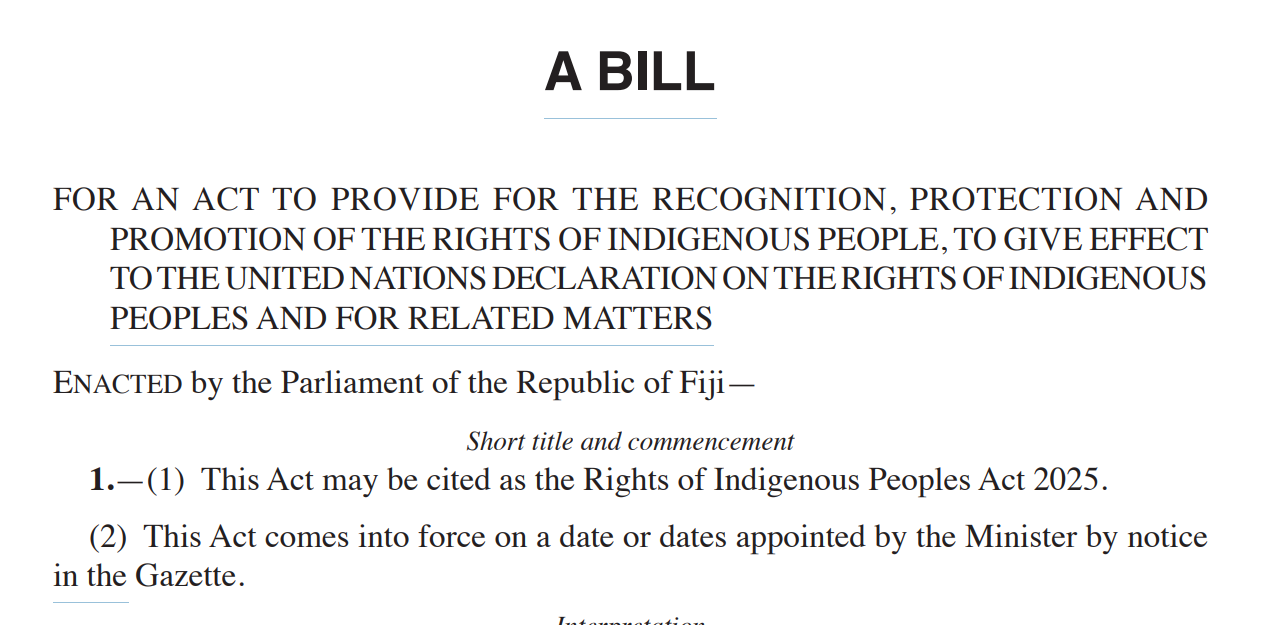Parliament has tabled a landmark piece of legislation aimed at recognising, protecting and promoting the rights of indigenous iTaukei people, with the Rights of Indigenous Peoples Bill 2025 laying out a comprehensive framework aligned with the United Nations Declaration on the Rights of Indigenous Peoples (UNDRIP).
According to the Bill, its core purpose is to “provide for the recognition, protection and promotion of the rights of indigenous people, to give effect to the United Nations Declaration on the Rights of Indigenous Peoples and for related matters.”
Under the proposed law, the objectives include affirming UNDRIP “as a universal international human rights instrument,” promoting the self-determination and well-being of indigenous people, and establishing mechanisms to combat “prejudice and eliminate all forms of violence, racism and discrimination against indigenous people.”
The Bill also aims to “promote mutual respect and understanding as well as good relations between various cultures or groups through human rights education” and to “recognise, respect, protect, and promote the culture and traditions and customary practices of indigenous people of Fiji.”
A key feature is the mandatory creation of an Action Plan, which the Minister responsible for iTaukei affairs must prepare in consultation with the Great Council of Chiefs and the iTaukei Affairs Board.
The Action Plan must outline priority areas and include measures to address injustices, strengthen accountability, support human rights education, ensure equitable sharing of benefits from natural resources, and protect genetic and cultural knowledge.
The Bill states that “the preparation of the Action Plan must be completed no later than 12 months after the day on which this Act comes into force,” after which the Minister is required to table it in Parliament within 14 sitting days.
The legislation also provides for annual reporting, with the Minister required to present a yearly update on progress made under the Action Plan.
The Bill includes indemnity provisions, protecting the Minister and authorised officials from legal liability for actions carried out “in good faith or with reasonable care,” and empowers the Minister to make regulations prescribing procedures for the protection of indigenous rights, culture, language, heritage, land and other related matters.
Penalties proposed under the regulations include fines of up to $10,000 or five years’ imprisonment for individuals, and fines of up to $50,000 for corporate bodies.
If passed, the Act will mark one of Fiji’s most significant legislative steps toward embedding indigenous rights within national law, in direct alignment with international human rights standards.



